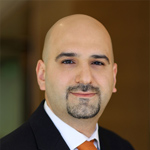Shook, Hardy & Bacon understands our clients’ products, their businesses and the automotive industry as a whole, as well as the legal and regulatory landscape and emerging technology and liability theories.
We have a deep bench of leading automotive trial, class action and appellate lawyers who take a multidisciplinary approach to representing our clients. Shook lawyers frequently participate in industry workshops and technical training sessions to enhance their knowledge of accident and biomechanical reconstruction, failure mode analysis, component characteristics and performance. Our team is also experienced in appellate procedure, so we can defend favorable judgments and attack unfavorable ones.
Product Liability Litigation: We represent companies that design and assemble automobiles, trucks, buses, motorcycles, ATVs, cranes, construction equipment, and specialized industrial and agricultural machines. Our work includes handling all types of product defect cases, including pattern litigation, and efficiently managing cases as regional or national counsel.
Our lawyers have fielded almost every type of claim. For example, we have dealt with rollovers, electronic stability control, tire failure, unintended acceleration, glazing, airbags, side curtains, active restraint systems, seats, roof design, fuel systems, brakes, vehicle structures, door latches, and child restraint systems. As part of our front-end risk mitigation services, we provide input on advertising and product literature and counsel on emerging issues such as autonomous and assistive vehicle technology.
Transportation Litigation: Our attorneys represent bus, truck and other transportation companies and their insurers in injury and property damage cases throughout the country.
Appellate Practice: Our automotive appeals team regularly assists companies and other law firms at both the trial and appellate court levels. At the trial court level we ensure error preservation; assist in legal strategy on liability, compensatory damages and punitive damages; and prepare complex pretrial motions, jury instructions, verdict forms and post-trial motions. We also frequently handle federal and state court writs and appeals, with an eye toward not only winning the particular case but developing favorable precedent.
Class Actions: Our automotive class action defense is tailored to the individual client and litigation goal. Striving to mitigate the risks of class actions before they start, we have successfully thwarted potential automotive class litigation by counseling on class waiver arbitration clauses. When litigation occurs, we usually get involved as soon as a CLRA letter or other pre-suit notice is received, and we defend our clients in state, multistate and nationwide class actions throughout the country. Our experience includes alleged automotive consumer fraud class actions, as well as alleged product defect class actions—with or without associated recalls. We defend our clients from disproportionate discovery and pursue targeted discovery of our own to lay the groundwork to defeat certification or otherwise dispose of the case through appropriate motion practice.
We also recognize that a favorable class-wide settlement may be an appropriate goal, and we are experienced both in negotiating the favorable settlement and ensuring that it withstands potential objection and secures final approval.
Representative Cases
- Boren v. Kia Motors America, Inc. | Plaintiffs involved in an accident alleged the vehicle lacked adequate roof strength, electronic stability control and rollover-activated restraint system technology, which they claimed rendered the vehicle defective and unreasonably dangerous; they sought damages in excess of $30 million. Following a four-week trial in Oklahoma, the jury returned a unanimous defense verdict.
- Gleason v. Freightliner, LLC | Shook lawyers secured a defense verdict for Thomas Built Buses, Inc. and Freightliner LLC in a consolidated trial in Missouri state court stemming from a school bus crash that resulted in fatalities and injuries. Plaintiffs sought in excess of $50 million in economic damages, claiming the brake system and pedal configuration on the school bus were defective. Following an eight-week trial, the jury returned a defense verdict, ultimately siding with the defense theory that the driver of the bus inadvertently depressed the accelerator instead of the brake. Missouri Lawyers Weekly named this case the top defense verdict of the year.
- Gilchrist v. Ford Motor Company | Plaintiffs filed suit against Ford seeking $200 million in damages, alleging that their F-250 diesel truck experienced a left front tire failure that caused the pickup to drift left into oncoming traffic. Claiming significant injuries, they alleged that the F-250’s Hydro Boost system and scrub radius made the vehicle defective and prevented the truck’s driver from steering right to avoid the collision. After a five-week trial, the jury found that Ford’s design of the Hydro Boost system did not cause the accident, and that the driver of the pickup steered left into oncoming traffic before colliding with plaintiffs’ car.
- Owen v. General Motors Corp. | In a case brought against General Motors in Missouri federal court, plaintiffs sought nationwide class action status for GM customers whose windshield wipers failed. Through aggressive use of motion practice, Shook lawyers obtained a dismissal of all of plaintiffs’ claims, including a consumer fraud claim. The court then denied plaintiffs’ motion for class certification as moot.
- Loose v. Mitsubishi Motor Sports of America | Shook lawyers defended Mitsubishi in nationwide consumer class action litigation in Kansas, alleging that the defendants’ wheels performed defectively. Shook successfully defeated class certification, then negotiated and oversaw a favorable nationwide class action resolution.
- Durkee v. Ford Motor Company | Shook lawyers defended Ford in a class action in the Northern District of California alleging consumer fraud class claims in relation to alleged unlawful and fraudulent warranty practices. Following an aggressive motion practice strategy, we secured a dismissal with prejudice and judgment in Ford’s favor.



